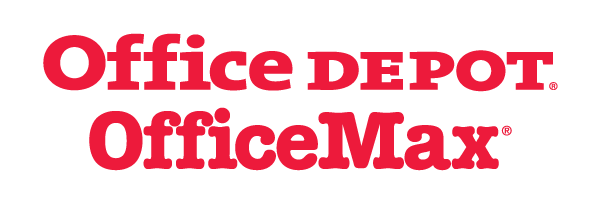 |
||||||||||||
| Archive | Subscribe | Printer Friendly | Send to a Friend | www.beautyschools.org | ||||||||||||
|
What's Hot
We are stronger together! The time is NOW to schedule meetings with your Members of Congress during the 2020 Government Relations Summit & Hill Day. We have two webinars to help you prepare for your meetings. Webinar 1: Getting Prepared For Your D.C. Appointment
But first, you need to register now and join your fellow school owners, faculty, students and employers to advocate on Capitol Hill for the beauty industry. Learning how to share succinct, effective messages with your lawmakers and how to effectively use social media for advocacy, are among the skills you’ll learn during this event. 2020 Government Relations Summit & Hill Day
Even if you can’t join us on Capitol Hill, you can still join the #IncludeBeauty campaign to protect our schools, students and employees from the College Affordability Act, a House bill approved in Committee by the Democrat leadership of the House Education and Labor Committee. The bill is the most comprehensive legislative attack we have seen on the cosmetology sector due to multiple damaging provisions directed at for-profit colleges. Communicate directly with Members of Congress to oppose the House College Affordability Act, and ask your employees and students to do so too. Letter templates and instructions are available here.
Yay… they are finally at your school! Is your team ready? Remember that a potential student walks in your door with 3 thoughts in mind: Can I do It? Can I afford it? Will I fit in? Does your team have the necessary process in place to address these concerns? Are they prepared to overcome any and all objections? Does the prospect leave feeling that you care? These questions and more are addressed by Nancy Rogers and Vicki Maurer of The Source For Training during this session. Learn how to:
Join us for Conducting A Commitment-Based Interview. Don't Sell; Let Them Buy Date: February 20, 2020
Applications are now being accepted for volunteers and speakers for 2020 AACS conferences. Volunteers for the CEA & AMP Convention and the AACS Annual Convention are key to the events' success. Join us as a volunteer event committee member. The AACS 2020 theme is: "It's Time To Engage: Advocate. Ignite. Rise." We want compelling programming that will leave attendees wanting more. We want your ideas for topics and credentials as a speaker to share your knowledge and expertise. Submit your application to volunteer here. Submit your application for speaker here.
For members only, this card can be given to your staff, faculty and students and is accepted at more than 68,000 pharmacies nationwide. Save up to 80% on prescriptions. No health restrictions, and may be used on drugs not covered in health plans. May even be used on many pet prescriptions. The card is pre-activated and ready for use! For your copy, contact Cristina@beautyschools.org.

We have partnered with OfficeMax to provide AACS members a special benefit. Businesses using the Office Depot discount program see significant savings. Take advantage of the program today and you could save thousands of dollars per year! To learn more, click here.
Looking for a one-stop resource to introduce AACS member school educators and students to Beauty Changes Lives? Look no further than the Beauty Changes Lives for schools portal. This section of the Beauty Changes Lives site features custom curated content for AACS schools. Resources include:
GRC News
Federal Updates U.S. Department of Education February 4, 2020 – Beginning on February 9, 2020, the Department will be retiring the FSAdownload website and posting software and user documentation on the IFAP website instead. The Department will incorporate Financial Partners Portal into the IFAP website as well.
Increasing Career and Technical Education Opportunities for Students · The FY 2021 budget request dramatically increases funding for Career and Technical Education (CTE) programs by $900 million. Transforming Federal Student Aid to Better Serve Students · This budget request proposes continued modernization of all aspects of FSA in order to better serve its customers, including a call for an evaluation of FSA as a separate organization, with reformed governance; · The budget also proposes to simplify the Federal student loan programs and student loan repayment by reducing the numerous and complicated loan types, establishing reasonable annual and lifetime limits on those loans, providing higher education institutions more flexibility to help students avoid overborrowing, and streamlining income-based repayment plans
U.S. Congress – Newly Introduced Legislation of Note
H.R.5810 – To amend the Higher Education Act of 1965 to improve the American History for Freedom grant program. a. Status: Referred to House Committee on Education and Labor, 2/7/20 b. Sponsor: Rep. Earl Blumenauer (D-OR) 5 Cosponsors
H.R.5784 – Supporting Minority STEM Student to Career Act a. Summary: To amend the Higher Education Act of 1965 to improve programs for minority students in STEM fields, and for other purposes. b. Status: Referred to House Committee on Education and Labor, 2/6/20 c. Sponsor: Rep. Marcia Fudge (D-OH) 1 Cosponsor
H.R.5768 – Accreditation Reform Act of 2020 a. Summary: To amend the Higher Education Act of 1965 to protect students and taxpayers by modernizing evaluation and increasing transparency in the accreditation system, and for other purposes. b. Status: Referred to House Committee on Education and Labor, 2/6/20 c. Sponsor: Rep. Lori Trahan (D-MA) 2 Cosponsors
H.R.5759 – Gateway to Careers Act of 2020 a. Summary: To establish a career pathway grant program. b. Status: Referred to House Committee on Education and Labor, 2/5/20 c. Sponsor: Rep. Alma Adams (D-NC) 2 Cosponsors Virginia’s General Assembly Debates Hour Reduction Bills The current week finds 39 state legislatures actively meeting – including Minnesota and Wyoming which commenced their 2020 legislative sessions this week. It also contains several important deadlines, including a February 11 “crossover” deadline in Virginia by which a bill needs to be passed by its chamber of origin to remain viable. Additionally, the following legislative chambers have bill introduction deadlines this week: Arizona House; Idaho House and Senate; Illinois House and Senate; Kansas House and Senate; West Virginia House, and; the Wyoming House and Senate. During this critical period, AACS will keep you apprised of the latest state legislative developments of interest to member schools.
Virginia’s Senate passed SB 915 by a vote of 25 to 15 on Tuesday. Last week, the Senate General Laws and Technology Committee in Virginia reported a committee substitute to SB 915 by a vote of 8 to 7. As currently drafted, the bill would prohibit the Commonwealth’s Board for Barbers and Cosmetology from requiring more than 1,200 hours of instruction “in the field for which an applicant for a license to practice.” Virginia currently requires a 1,500-hour course of instruction for cosmetology licensure. The substitute would also require licensed cosmetologists to complete at least four hour of continuing education every two years.
In Virginia’s House of Delegates, the Professions/Occupations and Administrative Process Subcommittee failed to report HB 514 with a deadlocked 4 to 4 vote. As initially drafted, the bill would reduce the course of instruction for cosmetology and barbering to a maximum of 1,000 hours. An amendment to align HB 514 with the SB 915 committee substitute was filed before the House Subcommittee hearing.
At the same hearing, the Professions/Occupations and Administrative Process Subcommittee voted 7 to 1 to recommend reporting HB 994, which proposed establishing a hair-only license in Virginia. Shortly thereafter, the full House General Laws Committee voted 7 to 14 to kill the bill.
An hour reduction bill was filed in Rhode Island last week. H7484 would reduce the course of instruction for a hairdresser's and cosmetician's license from 1,200 to 600 hours. It also contains hour reductions for barbering (from 1,500 to 600 hours), manicuring (from 300 to 200 hours), and esthetics (from 600 to 300 hours). The measure, which currently has five sponsors, has been referred to the House Corporations Committee.
Rhode Island’s House Health, Education and Welfare (HEW) Committee conducted a hearing on H7112 and H7231 last week. As previously reported, H 7112 would repeal the current requirement that licensed beauty industry professions be “of good moral character,” and either a citizen of the of the United States or legally permitted to be in the country. The measure would also eliminate shop licensure fees. H 7231 adds the application of eyelash extensions and the use of chemicals in the area of the eyelids to scope of practice of “hairdressing and cosmetic therapy.” Both bills were retained in the HEW Committee for further study.
A Michigan bill to deregulate barbering was introduced last week and referred to the House Regulatory Reform Committee. HB 5438 currently has three sponsors -- two Republicans and Democratic Representative Cynthia Johnson from Detroit. A companion bill – HB 5439 – was filed to strike barbering licensure fees.
In Arizona, a bill to merge the state’s barbering and cosmetology boards was introduced last week. HB 2740 would also: reduce the course of instruction for barbering from 1,500 to 1,000 hours; establish a new 1,300 hour combined barber and hairstylist license; allow for pre-graduation testing; provide for out-of-state licensed professionals to provide services for up to two weeks to “persons who are attending an athletic, charitable, artistic or social event” in Arizona, and; correct a statutory oversight by allowing hairstylists to remove superfluous hair from the neck. Of interest to schools, the bill would allow students to provide off-campus services at a school sponsored event and permit schools to offer “similar” programs – for example, massage therapy – not regulated by the state’s cosmetology board. Finally, the measure contains provisions allowing a “laser safety officer” – defined by rule – to directly supervise an aesthetician or cosmetologist certified as a laser technician.
Finally, South Dakota SB 10 and SB 23 are on their way to Governor Kristi Noem (R) after being passed unanimously by both legislative chambers. As previously reported, SB 10 would require the state’s Cosmetology Commission to “allow credit for general coursework in areas not specific to the practice of cosmetology, nail technology, or esthetics, that is completed in other programs or institutions, to be applied to any course of study required for licensure.” SB 23 would repeal the high school graduation or equivalent requirement for professions under the state’s Cosmetology Commission.
The text of the bills listed in this report can be found in AACS’ Bill Tracking Portal. Please do not hesitate to contact Brian Newman at bnewman@abingdonstrategies.com or by phone at 202-491-5254 with comments or questions.
Upcoming State Hearings/Meetings
February 18, 2020 at 1:00 p.m. – Maryland House Appropriations Committee Hearing on HB 469 and HB 470
HB 469 would require for-profit institutions that “disorderly close” to provide “all essential records of the academic achievement” of former students to the Maryland Higher Education Commission. The penalty for failing to remit these records is a full refund of all tuition and fees paid by students without records appropriately filed. Schools can avoid falling under the “disorderly closure” definition by entering into at least one “school-to-school” teach-out agreement.
HB 470 would require each for-profit college or private career school to spend at least 50 percent of its tuition-revenue on “instructional spending” as defined by the federal Integrated Postsecondary Education Data System. Institutions who fail to meet this threshold may not charge Maryland residents “an amount of tuition, fees, or other institutional charges in excess of two times the amount spent per student on instructional spending in the immediately preceding academic year; and shall provide a refund to each Maryland student who attended the institution during the immediately preceding academic year equal to the amount of tuition charged to the Maryland student in excess of the instructional spending per student amount multiplied by two.”
Additional State Bill Introductions
Kansas SB 365 This bill contains amendments to the state’s barbering Act. It would add a provision stating that “no student shall receive compensation, directly or indirectly, for services rendered by such student in any barber school or college.” It would also require barber schools or colleges to “maintain and preserve all records of students who enroll in such school or college in accordance with rules and regulations adopted by the board.”
Kentucky SB 129 The bill would include waxing in the definition of cosmetology and establish a 175-hour wax technician license. The bill also eliminates the minimum age and high school graduation requirement for “blow drying services” licensure. It however retains the 450-hour course of instruction for blow drying services licensure.
Maryland HB 1041 The bill would allow master barbers to supervise up to 3 apprentices at the same time. Under current law, a barbershop may not employ more than one apprentice barber for each master barber employed.
Mississippi MS HB 527 This bill would deregulate threading and eyelash extension application by removing them from the state’s definition of "cosmetology" and "esthetics.”
New Jersey S1197 According to the official statement, “this bill requires any person who holds a license to practice cosmetology and hairstyling, barbering, beauty culture, manicuring, hair braiding, or skin care specialty to complete one hour of domestic violence sensitivity and response training prior to the completion of a course of instruction, vocational program, or other approved program in cosmetology and hairstyling. The bill requires the New Jersey State Board of Cosmetology and Hairstyling to establish criteria and standards for domestic violence sensitivity and response training for practicing licensees. The training is required to include, but shall not be limited to, information concerning recognizing the signs of abuse and assault and the resources available to victims of domestic violence. The bill requires the board to issue regulations regarding the additional requirements for, and the approval of providers of, domestic violence sensitivity and response training.” Member Events
EL140: Andragogy in Online Learning This course will assist in improving the richness of online learning opportunities by incorporating strategies to avoid the rote memorization and repeating of facts for assessment purposes. Instructors will be able to construct an overarching philosophy to coincide with templated materials. A foundation for success can begin with analyzing the principles of Malcolm Knowles' Theory of Adult Learning and applying those principles to the online classroom. The goal of this course is to help develop a better understanding of the topic, and produce tangible resources to help implement plans, strategies, and ideas at your institution. In addition to lecture videos, resource links, and assessments, you will be able to utilize Learning Activities, which will continue to be useful after successful completion of the course. Members in the News
AACS is working with members to achieve our legislative and regulatory objectives at the federal, state and local levels, ensuring lawmakers don’t pass misguided legislation that could severely harm our industry. We need your help to tell the industry’s compelling story and save our industry from the negative consequences of harmful legislation. You can help by donating to help us fund this important public relations campaign, and by sharing stories and testimonials. To submit a donation, please click here. To submit a story, please click here. |
||||||||||||










